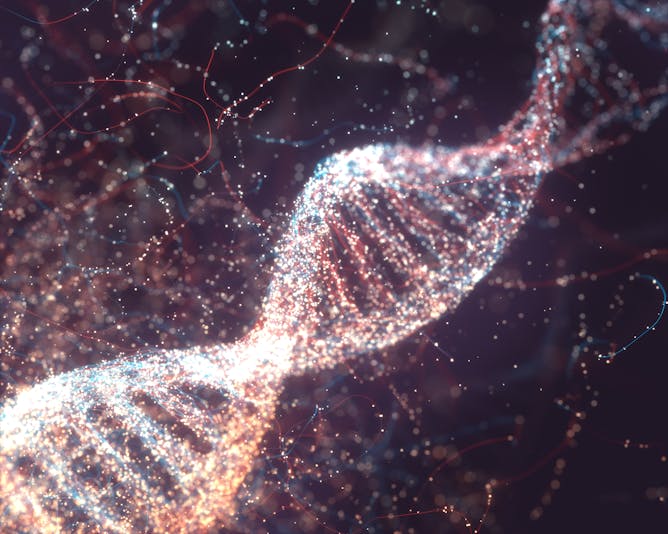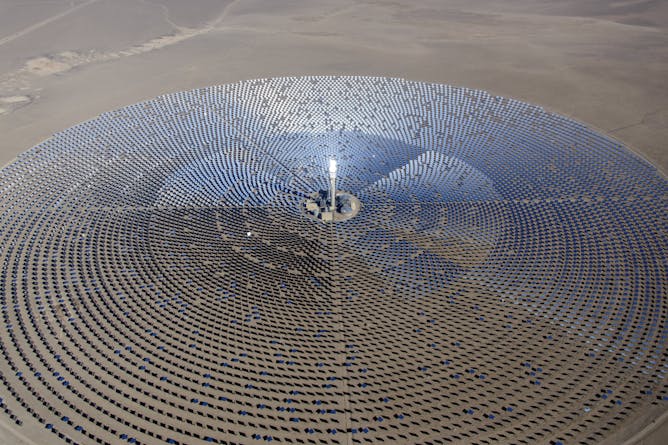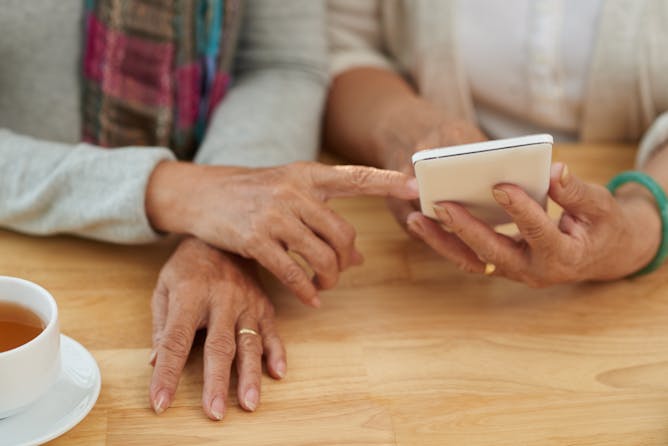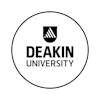|
|
|
Editor's note
|
|
Cancer is currently diagnosed with a biopsy, which requires an invasive, often surgical, procedure to collect tissue from the patient. And by the point at which it can be detected, the cancer is often at a more advanced stage than ideal for treatment. This is why researchers are on the lookout for a quicker, non-invasive way of diagnosing cancers at an earlier stage. And they’re getting closer, with new blood tests (known as liquid biopsies) in development all over the world.
Now, researchers from the University of Queensland have found that all cancers share a specific structure in the their cell DNA. And if put in water, it forms a pattern that is attracted to gold particles. The researchers, Abu Sina, Laura Carrascosa and Matt Trau, write that isolating cancerous DNA and seeing its affinity to gold can detect cancer in less than ten minutes. But it’s important to remember, this is one of many cancer diagnostic
tests in development, and it is currently only lab based. Large human trials are needed to make sure this kind of detection method can be used in the clinic, and that the number of false diagnoses aren’t so high that it cancels out the real benefits.
On a side note, we’re very excited to be hosting a space-themed event for our readers in Brisbane. Join The Conversation’s Curious Kids editor Sunanda Creagh, The University of Southern Queensland’s Jonti Horner, The University of Queensland’s Josh Calcino and Janie Hoormann as they discuss all things space-related to launch The Conversation Yearbook 2018. Buy your tickets here (and bring the kids along for free).
|
Sasha Petrova
Deputy Editor, Health + Medicine
|

|
|
Top Stories
|

All cancers have a similar DNA pattern that differs from that of non-cancer cells.
from shutterstock.com
Abu Sina, The University of Queensland; Laura G. Carrascosa, The University of Queensland; Matt Trau, The University of Queensland
Our research has found that cancer DNA forms a unique structure when placed in water. We used this finding to develop a test that can detect cancerous DNA in less than ten minutes.
|

Northwest Australia has some of the world’s best conditions for solar and wind energy production.
PR Handout Image/AAP
Roger Dargaville, Monash University; Changlong Wang, University of Melbourne; Scott Hamilton
An energy transmission network between Australia and Indonesia could help both nations achieve 100% renewable electricity by 2050.
|

Two thirds of Australians over 65 use social media.
Shutterstock
Bernardo Figueiredo, RMIT University; Linda Brennan, RMIT University; Torgeir Aleti (né Watne), RMIT University
Younger generations could learn a thing or two from their older counterparts about how to have a healthier relationship with digital technologies like social media.
|
Education
|
-
Katherine Mills, University of Sydney; Natalie Peach, University of Sydney
Some 80% of young people will experience a traumatic event by the time they become an adult. Here's how teachers and parents can support them.
-
Don Carter, University of Technology Sydney
The Melbourne Declaration is now ten years old. It acts as a national guide for education policy, practice and delivery in Australian schools.
|
|
|
|
Arts + Culture
|
-
Jill Vaughan, University of Melbourne
At the Maningrida football Grand Final in 2015, commentary was recorded in nine languages. But elsewhere, the threat of language loss poses a serious risk to our nation’s cultural inheritance.
-
Glyn Davis, Crawford School of Public Policy, Australian National University
In a speech to a summit on to explore issues of academic freedom and autonomy, Glyn Davis lays out the evidence (or lack thereof) free speech on campus is at risk.
-
Daniela Kaleva, Australian Institute of Music
Artaserse is an old Roman fable of treachery and the ethical power of clemency that becomes a psychological study of conflicting desires.
|
|
Politics + Society
|
-
Lawrie Zion, La Trobe University; Andrew Dodd, University of Melbourne; Matthew Ricketson, Deakin University; Merryn Sherwood, La Trobe University; Monika Winarnita, La Trobe University; Penny O'Donnell, University of Sydney; Timothy Marjoribanks, Swinburne University of Technology
Since leaving secure jobs in newsrooms, employment has been unstable for many former journalists – but job satisfaction has been surprisingly high.
-
Darren Palmer, Deakin University
The royal commission will examine the conduct of a defence barrister who became an informant to the police - supplying information on her own clients that had been given to her in strict confidence.
-
Hedda Ransan-Cooper, Australian National University; Selen A. Ercan, University of Canberra; Sonya Duus, University of Canberra
While anger mobilises opposition to coal seam gas projects, it is also joy, especially the joy of social connection, that helps to sustain involvement.
|
|
Business + Economy
|
-
Hari Bapuji, University of Melbourne; Snehanjali Chrispal, University of Melbourne
A poster proclaiming "Smash Brahminical Patriarchy" has landed Twitter's head Jack Dorsey in trouble in India. It shows just how invisible caste is to outsiders.
|
|
Environment + Energy
|
-
Roger Dargaville, Monash University; Changlong Wang, University of Melbourne; Scott Hamilton
An energy transmission network between Australia and Indonesia could help both nations achieve 100% renewable electricity by 2050.
-
Michelle Grattan, University of Canberra
This and Turnbull's observations on energy policy provided abundant material for a question time attack by Labor bloated from dining on the unending manna that's been flowing from political heaven.
-
Anna Farmery, University of Wollongong; Gabrielle O'Kane, University of Canberra; Gilly Hendrie, CSIRO
For the most nutritious and sustainable seafood option, try small ocean fish.
-
Robert McLachlan, Massey University; Steven Alexander Trewick, Massey University
New Zealand is the last major landmass to be settled some 800 years ago. Since then, changes in land use have been extensive and catastrophic for the country's unique flora and fauna.
|
|
Science + Technology
|
-
Bernardo Figueiredo, RMIT University; Linda Brennan, RMIT University; Torgeir Aleti (né Watne), RMIT University
Younger generations could learn a thing or two from their older counterparts about how to have a healthier relationship with digital technologies like social media.
-
Jennifer Kent, University of Sydney
The arrival of autonomous vehicles would ideally reduce the number of cars on our roads. But this is a pipe dream without a robust public transport system and willingness to share.
|
|
| |
Featured jobs
|

|
RMIT University — Melbourne, Victoria
|

|
University of Melbourne — Parkville, Victoria
|

|
La Trobe University — Melbourne, Victoria
|

|
University of Western Australia — Perth, Western Australia
|
|
|
|
Featured events
|

|
Monash University Law Chambers, 555 Lonsdale Street , Melbourne, Victoria, 3000, Australia — Monash University
|

|
The University of Sydney, Sydney, New South Wales, 2006, Australia — University of Sydney
|

|
Deakin Downtown, Level 12, Tower 2 Collins Square, 727 Collins Street, Docklands, Melbourne, Victoria, 3008, Australia — Deakin University
|

|
Abercrombie St and Codrington St, Darlington, The University of Sydney, Sydney, New South Wales, 2006, Australia — University of Sydney
|
|
|
|
| |
| |
| |
| |
| |
|
|
|
|
|
|
|